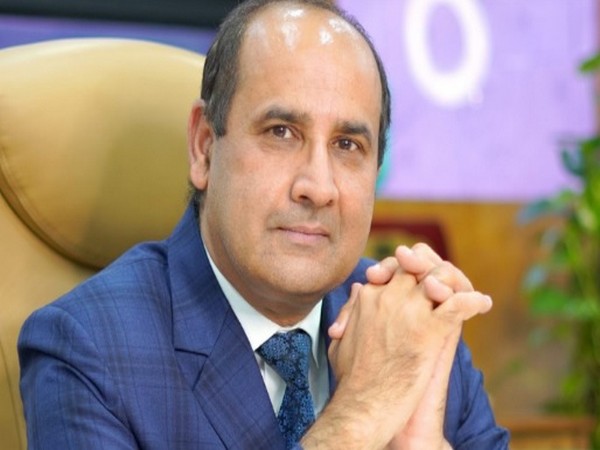COVID-19 resulted in an increased gender gap: Dr. Ranjana Kumari
.jpg)
NEW DELHI
What fueled your/organization's interest in women’s issues and how did you carve your path towards social activism?
The seeds of our mission were first sown from 1974 through 1977, when political upheaval in the country brought many thousands of people from across the country to the forefront of socio-political activity and reform-mindedness. It sharpened our ideologies and kindled a new flame in the youth.
Centre for Social Research’s core mission is to restructure gender relations toward a humane, equitable and gender-just society. We focus our attention toward empowering women, protecting and ensuring women’s rights and understanding social issues from a gender perspective.
We believe that people of all genders deserve equal rights, privileges and opportunities. We believe that women can be catalysts for and agents of social change. And we recognize that restructuring gender relations require the participation and support of all sectors of society: women and men, young and old, grassroots to national levels, private and public institutions alike. All people, regardless of their gender or status, are decision-makers—and therefore also change-makers.
What is the gendered effect of the pandemic in India?
Gender effects of COVID-19 are complex, it is notable that women have suffered more as compared to men in several ways, they have lost their livelihood, care work has increased, there is a spike in gender-based violence and women also see excessive gender discrimination in accessing public healthcare facilities. Measures to combat COVID-19 did not include any consideration to address existing gender disparities. In the absence of clear policies, COVID-19 will only result in an increased gender gap due to the widening of already existing social and economic inequalities in India. According to a recent report by McKinsey, female job loss rates are 1.8 times higher than the male job loss rates globally due to the COVID-19 pandemic. A high proportion of women are suffering from the economic and social impacts of the COVID-19 pandemic.
Across the world, but more specifically in India, the instances of domestic violence against women and young girls have increased by 100%, as per the statistics released by the National Commission for Women (NCW). At least 4 in 10 women in India have lost their jobs during the pandemic, according to the latest data from the Centre for Monitoring Indian Economy’s Consumer Pyramids Household Survey.
During the pandemic, an estimated 17 million women were rendered jobless, in both the formal and informal sectors in India, according to Centre for Monitoring Indian Economy’s Consumer Pyramids Household Survey.
The sex ratio at birth in India is 899 girls for every 1,000 boys born. According to UNFPA’s recently released State of the World Population (SWOP) report, COVID 19 may exacerbate the already concerning numbers around early marriage, violence and sex birth ratio at birth.
A recent Population Foundation of India (PFI) found that young people in three Indian states of Uttar Pradesh (UP), Bihar and Rajasthan show that 51% of female adolescents experienced an increase in workload during the nationwide lockdown.
Please shed some light on Women's covid recovery program.
In 2020, during the first phase of the programme, CSR launched its Women’s COVID Response and Recovery program to support communities in 16 districts of Delhi and Haryana to better response to the pandemic. This program strengthened a network of 30 NGOs to provide local support and referral services for victims of domestic violence and built the capacity for 600 community health workers and community leaders to promote COVID hygiene and support the growth of training. As part of this effort, the program distributed over 8,000 hygiene kits to women in our target communities. We also distributed dry ration, food packets in certain areas of Delhi & Haryana. The program also advocated with district, state, and national health policy to improve outcomes for women under COVID, given the disproportionate impact that the pandemic has had on women’s mortality.
In 2021, given the severity of the crisis and the widespread vulnerability of communities to this disease, CSR proposes to extend its effort to create awareness and local capacity through working with community health workers and the local NGO partners that we worked with during the first phase of the project, launched in 2020. CSR leverages this infrastructure to provide communities the information and health resources they need in this time of crisis. CSR has distributed 5000 hygiene kits and food packets, linkages with supplies for food, medicines, and essential services. We have also distributed health kits including digital thermometers, oximeters, oxygen concentrators. We have also worked on awareness generation & IEC resources like COVID Home Care and Monitoring, Local Health Resources, Vaccination Awareness & Access, Countering COVID Misinformation, Online Toolkit for COVID Response. We have created a database of local resources in each of the 16 districts to provide support for youth wellbeing and support them as community educators on COVID.Online workshops to educate and leverage network on second wave COVID response and to coordinate efforts have also been done.We have also made efforts on E-Counselling service particularly psychosocial and legal counseling for women suffering domestic violence under the lockdown. CSR is the Nodal Agency of NCW to provide E-Counselling services to SGBV survivors.
How has covid affected Gender equality?
The World Economic Forum in its Global Gender Gap report of 2021 has not just highlighted the sad state of unequal progress of women among the two major genders, but also found evidence that the COVID-19 pandemic affected women. The COVID-19 pandemic has exacerbated the already existing gender inequalities with substantial implications on women. Owing to the sexual division of labor, and gendered roles and social norms of performing domestic and care work, the burden of unpaid work falls disproportionately on women. Unfortunately, the same women also face the brunt of verbal, physical, emotional, mental and sexual abuse and other forms of deprivation and discrimination both inside and outside their homes. According to the National Commission for Women, among the 14.3 % of victims who sought help, only 7% reached out to police, doctors, lawyers and/or counsellors. More than 90% of the victims sought help from immediate family members.
During the ‘new normal’ phase of ‘stay at home/physical-distancing’, these invisible sufferers became the worst affected more so due to the closure of courts and other legal centres, which made it even more difficult for women to reach out for their protection.
Amidst this lockdown, with the lack and loss of job and employment, the male members of the family have often resorted to violence owing to lesser control over economic resources and security. On the other hand, employed women in the family were better off than the women with no employment or financial security. The stress economic instability and insecurity has added fuel to the problem and given rise to what we call the ‘Shadow pandemic.’
This crisis has further exposed the glaring gender disparity through house hold work and other domestic chores. In this patriarchal society, domestic work is associated with the ‘female’ members of the family, and with the absence of domestic help, the majority of the domestic work had fallen upon the women. Though in many cases, the men had been forthcoming in sharing the household duties and other basic functions of the home at times, but the child-care duties and other care giving function still lay with the women. The closures of schools and other day-care child centres, women have been overburdened with the responsibilities the house, children and/or aging parents, which took a toll on their physical as well as mental health. The added stress of balancing work, looking after the kids, supervising their online classes, cooking and cleaning led to the deteriorating mental health of women.
Please briefly mention if any long term vision of the organization for Covid recovery work with the communities.
In the long term vision to fight against such pandemic like COVID-19, CSR would like to ensure that 100% women and girls get vaccinated in the communities. Promoting and advocating for robust health care system to provide access to women to locally available public health care facilities. Their reproductive health during the pandemic must be taken care of with a rights-based approach. Stressing upon women’s work force participation must be on a guarantee basis without any market risks and Community Watch Groups and local Youth Forums including sensitized men and boys to stand up against any SGBV case with regular vigil on high-risk families. Retention of girls in secondary and senior secondary classes despite challenges of digital divide.











